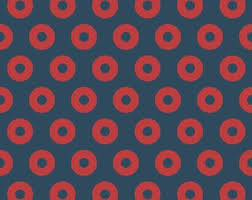nice try narcissists
Would have up voted but the lack of citation and pointless censorship pushed it over for me.
Also “Antisocial” does not mean introverted. It means to react violently to social situations.
Would have up voted but the lack of citation and pointless censorship pushed it over for me.
I’d’ve liked to see “schizophrenic,” “antisocial,” and “psychopath” among possible others, but this is indeed pretty cool.
I’dn’t’ve.
You’shn’t’ve
Schizophrenic pop - hearing voices or seeing people and things that aren’t real. Makes you do crazy stuff sometimes.
Schizophrenic from my Psych101 lecture - a disorder that includes marked changes in behavior, mood, affect, and perception. Sufferers question reality, may feel persecuted, and experience sensory simulation that has no external cause. Genetic component coupled with trauma (stress-diathesis model), with an extremely high comorbidity of suicide attempts, depression, and self harm.
Antisocial pop - going against the grain, not wanting to hang out with people, being misanthropic. “Oh jeeze, i’m just so antisocial lately… maybe I’ll party some other time, guys.”
Antisocial personality disorder 101 - personlality disorder involving behavior that is typically not only interpersonally disruptive, but is often actively working against the benefit of others. Often accompanied by blunted capacity for empathy for others. Strong genetic component, may express after traumatic childhood experience or an abusive upbringing. Interestingly, has a high comorbidity for substance abuse and other potentially self-destructive behaviors. AKA sociopathy. Early.onset, typically pre-adolescence at latest for diagnosis. Otherwise, it’s considered something akin to adolescent outburst, where it’s expected to go away after some time. Early onset prognosis is worse.
Psychopathy pop - Cletus Cassidy, Michael Myers, Mrs. Voorhees, the Driller Killer, etc. See also “psycho”
Psychopathy 101 - similar to ASPD above, but not so much the self-destructive behaviors. Couples antisocial behaviors with complete lack of care or remorse for others, along with a superficial charm (refer back to Learning & Behavior, and social psych notes… charm is a skill!) to manipulate others into doing what they want. Often manifests as “conduct disorder” in kids, but diagnosis is difficult, as there is little objective criteria to go on. The very definition of Psychopathy is hard to nail down, given its broad symptom list, overlap with other diagnoses, and disagreement among professionals.
“Psycho” is often misused, as it actually refers to psychosis, which is a detachment from reality in which the sufferer can’t tell what is and isn’t real. Causes considerable distress and may lead to dangerous or self-injurious behaviors.
Thanks for taking the time!
On the pop front, I’ll just point add there was also a widespread misconception for a very long time (mostly in the past now I think, but still out there) that schizophrenia was the same as dissociative identity disorder.
Yeah, true on both. I mean… I guess I’ve used the terms either way but also understand the differences and appropriate usages of both.
You are correct. The only truly incorrectly defined word in the list is the “pop psychology” form of “trauma”, which looks like it was just made up for the sake of the meme. “Gaslighting” is correct on both sides, but the two in the middle are actually being paired with different forms of the same word, so the definition is inherently different. Also, the definitions on the left are coming from a learner’s dictionary so they come across as stupid next to advanced definitions.
Not really. I’ve seen a lot of people overuse “trauma” that way. I’m biased, as I teach psych, but there really is an almost silly amount of misuse of terms that way. Hell, that Lind of language is misused in online communities all the time, by people trying to punch-up their own actually mundane boring lives to make it sound like they’ve “been through” more than they have.
Why does it censor “abusive?”
Someone answering above reminded me a couple of big online platforms will limit your traffic if your content contains certain words from an arbitrary list. So they probably self-censored to make sure the content would be seen.
Abrasive*
Typing abusive is a trigger for them.
snowf**ks
To trigger
I wondered as well. Doesn’t make sense (to me).
Some SEO thing for avoid to be shadowed/banned on some platform which use OCR.
Yeah, if they’re gonna do that, they need to censor trigger and trauma too. Better throw in "flashbacks*, PTSD, and OCD just to be safe.
This all seems correct as far as I know, but generally speaking we should reject infographics without source info
I agree with the other three, but this is wrong about “narcissists”. “Narcissistic Personality Disorder” is a diagnosis, but calling someone a “narcissist” isn’t. That’s just a description of someone’s personality. It’s much older than the diagnosis, going back to the Greek myth of Narcissus. The diagnosis doesn’t get to co-opt the much older usage.
You’re not speaking ancient Greek, mate, you’re speaking English, and your use is informed by the history of the English language. The use of Nar******t in pop culture is largely informed by Christopher Lach’s 1979 book The Culture Of Narcissism, which made the argument that contemporary American culture was normalising clinical NPD. You didn’t learn to call people nar******ts by reading ancient Greek myths, and I know that for a fact because the ancient greeks didn’t go around using the word. To them, it was just some guy’s name. You learned the word from someone who learned the word from someone who learned the word from Lasch’s book, and from the ableist books that came after. Your folk etymology explanation that the pop culture use comes directly from Greek is missing a lot of important and relevant intermediate steps.
Brainiac!
LOL love this mic drop
Yeah it’s just the higher stage of selfishness. You can be selfish, egoistic, etc. Then you reach Narcissus level, or worst, the pond/lake level.
Be honest with yourself, but don’t glorify victimhood. Being a victim fucking sucks. It’s not something to aspire to. I have my issues, but I know I’m not a victim.
I’ve been blessed not to have to deal with abuse the way others have. I don’t want to cheapen what they went through by classifying something unpleasant I went through in personal interactions as actual abuse or trauma.
It’s so difficult to try and have this nuanced take with people. I’m NOT trivializing or saying you should "just suck it up " I’m suggesting that you treat mental illness like an illness: Seek treatment, follow professional advice, and be honest with yourself and the professionals you’re seeing. If I broke my leg, but refused to get a cast because I felt it was really a problem with my arm, while lying to every doctor I meet about what happened, people would get very sick of my nonsense in short order.
I disagree with this but not sure if you’re gaslighting me or not 🤔.
Your definitely being gaslight.
Or are you…
Oh god… hold me 🥹
Err… The phrase “Gaslighting” came from the movie Gaslight.
The idea of being “Triggered” came from Trigger Warnings.
Psychology may have their own understanding of those terms, but I don’t think it has the original usages or widest popularization.
Okay, but didn’t what happen in that movie in line with the actual psychology column?
Look this is an art imitating life imitating art discussion that I don’t think its going to go anywhere, I’m just saying, on the one hand I appreciate the post trying to clarify things for people misusing these terms but on the other hand I don’t think it’s being honest with how they’re being misused.
If someone doesn’t lie to you and pretend it’s not a lie, that can still be the start of Gaslighting and should be called out as quickly as possible so people know they can’t do that.
That’s not a misuse or problem that needs to be corrected just because it’s not exactly what happened in a 1930s movie. Which is by the way still pop-culture not “actual” psychology.
A psychologist didn’t come up with it, an artist/writer did. Science doesn’t get to claim all authority all the time and humanity should be relearning the fact that art and culture DOES produce knowledge.
Posts like this, the dismissal of cultural or “pop” phenomena as less authoritive is part of why we don’t - that’s my problem with it, okay?
Trigger warning came from the psychological term for situations or stimuli that bring on panic attacks or obsessive thoughts.
Why the hell did you censor abuse?
Tangentially related, “Cultural Appropriation” was a an anthropological/historian term that meant defining and controlling another’s culture. A good example is the English making it illegal for Scots to wear kilts in the 1700s. It is not personally using a hairstyle associated with another group despite what the term sounds like. The people that use that meaning literally culturally appropriated the term from the original group, under the real meaning of the term. People trying to tell spanish speakers that they are “Latinx” is another example of the original meaning.
wh* is thi* so ********?








